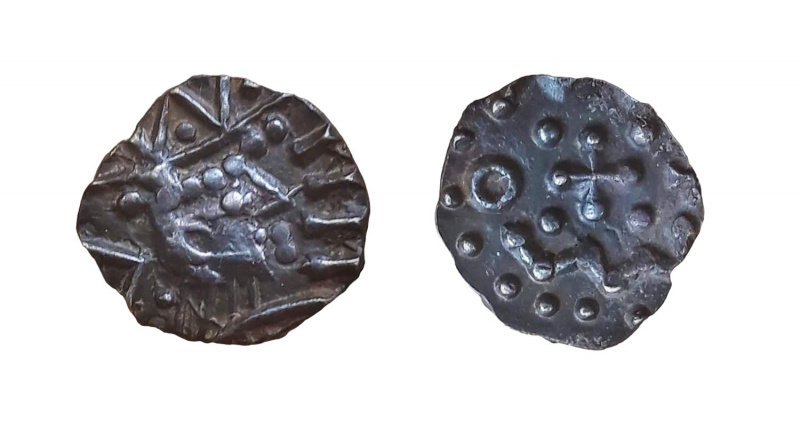Continental sceatta, series D
This hammered silver coin measures only 12mm in diameter but is shown greatly enlarged. It was unearthed somewhere in North Yorkshire a few days back by Chris Stead, who is fairly new to detecting.
Chris’s find is a silver sceatta, which dates between circa 695 and circa 740 AD. It was made during the Anglo-Saxon period but it started its life on the Continent rather than in England.
On the obverse is a bust facing right with runes directly in front. The reverse has a beaded outer circle, within which is a cross pommee with pellets in the angles, an annulet and a zigzag. This Continental sceatta is an example of series D, type 2c and the reverse variety is 3f.
The standard of workmanship on the dies used for type 2c varies a great deal. The bust on the obverse die can be anything from truly realistic to just a mass of lines and pellets.
Valuation
This sceatta is well struck and would grade good VF for the type. It’s not a rare coin but in its present condition it shouldn’t be worth any less than £80 to £100 to a collector of Anglo-Saxon coins.
Valuation Service
If you would like your coin identified or valued, please read about my valuation service and contact me

